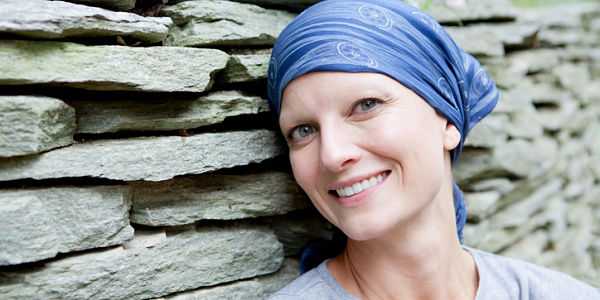Colorectal cancer: sophrology to support patients

This month, the “Blue Mars” campaign is taking place, an awareness program for colorectal cancer, the third most frequent cancer and second cause of death in France. On this occasion, we interviewed Catherine Aliotta, sophrologist and author of the practical manual “Sophrology and cancer” to find out the place of sophrology in the treatment process.
Sophro actu: The “Blue Mars” campaign is taking place all over France this month. Why do you think our compatriots are cautious about screening for the disease?
Catherine Aliotta: In fact, there are two aspects that hold back the French in this prevention approach. First, the taboo that resides around this disease, let’s not forget that colorectal cancer affects an extremely intimate part of the body. People imagine that it is necessary to expose your body to the eyes of health professionals to make a diagnosis. The advantage with this screening is that it can be done at home and yourself.
Publicity
The other, no less negligible facet, is this fear of being diagnosed with illness. However, if I take up a famous saying: “Fear does not avoid danger”. On the other hand, fear prevents getting tested in time, accessing effective treatments and being more easily cured.
Sophro actu: Can sophrology help these people to fight their fears?
Catherine Aliotta: Absolutely. For some people it will be a simple apprehension, for others it will be a real phobia. The practice of sophrology has the advantage of countering the effects of fear. Becoming aware of the impact of your fears on your body and mind is already an important step. And thanks to different techniques, it will be possible to calm down your fears gradually. The practitioner can then mentally prepare for the screening stages. Sometimes a few sessions are enough.
Sophro actu: What does sophrology provide as support if a diagnosis of the disease is finally made?
Catherine Aliotta: Contacting a sophrologist when you are confronted with an illness announcement has several advantages. First, the sophrologist will take into account all the emotional aspect related to this news. The goal will be to accompany the person to channel the flow of emotions that overwhelms them. An extremely beneficial approach at the beginning but also throughout the care process.
As a supportive oncology treatment, the method is also useful for relieving pain and the undesirable effects of treatments. Colorectal cancer causes discomfort in the colon, but sophrology helps the patient to reduce the intensity of these feelings. The type of exercises performed can be performed during all treatments and even during chemotherapy, if it takes place.
Finally, when one suffers from a serious pathology, and one is forced to undergo treatments or even surgical interventions, it is fundamental to find the resources necessary for one’s psychological well-being. Maintaining morale promotes good patient intake and contributes to his recovery. Sophrology is particularly recommended for learning to stay the course and direct your attention to something other than the disease, in this case positive images or sensations.
Sophro actu: In your opinion, what place will sophrology have in supporting cancer patients in the future?
Catherine Aliotta: A place in its own right, and that’s already happening. Sophrologists have taken place in hospital structures to support cancer patients. What is necessary today is to allow sophrologists to access specific training tools to respond to the problems generated by the disease. This is what motivated this book for professionals. Same, for the specialization “Sophrology and cancer” that we offer toSophrology Training Institute, a breakthrough that was close to my heart as director. The more the sophrologist holds the theoretical and practical keys to support these people, the more effective will be the sophrological monitoring.
A big thank-you Catherine Aliotta for the interview you gave us. We recall that the release of the Practical manual “Sophrology and cancer” will take place on April 5 in paper and digital format.
Blue March takes place until the end of the month with events organized in more than 60 cities in France by the Cancer League.
